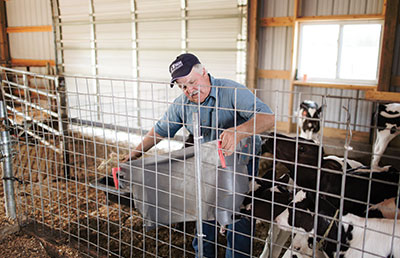IRS Places Temporary Pause on the Processing of ERC Claims

Have you received a letter in the mail from a company you’ve never heard of promising you tens of thousands of dollars in Employee Retention Credits? Have you ever wondered how these folks can possibly know how much you are due or if you even qualify for the credit? The IRS has issued multiple warnings about aggressive schemes to obtain employe retention credits, but they were not heeded. This led to action by the IRS on September 14 as they placed a temporary moratorium on the processing new ERC claims.
IRS Commissioner Danny Werfel stated in the press release that “The IRS is increasingly alarmed about honest small business owners being scammed by unscrupulous actors, and we could no longer tolerate growing evidence of questionable claims pouring in. The further we get from the pandemic, the further we see the good intentions of this important program abused. The continued aggressive marketing of these schemes is harming well-meaning businesses and delaying the payment of legitimate claims, which makes it harder to run the rest of the tax system. This harms all taxpayers, not just ERC applicants.”
So, what does this mean to those with a pending claim or who have not yet filed a qualified claim?
- The IRS will continue to process ERC refunds for previously submitted claims. Taxpayers can continue filing refund claims but should verify their claims are supported with eligibility documentation for either a decline in gross receipts or a partial shutdown.
- The IRS encourages and supports employers’ choice to use a qualified tax professional to file their claims.
- Employers can expect longer wait times of up to a year to receive their refund payments, and the IRS may request more documentation from an employer prior to processing the claim.
- The IRS urges employers who have already filed an ERC claim to consult a trusted tax advisor regarding eligibility requirements. The IRS will issue guidance how to return the money if an employer no longer believes it is eligible for the credit.
The IRS also issued some “warning signs” of aggressive ERC marketing that taxpayers should watch out for when considering if they qualify for a claim. These include:
- Unsolicited calls or advertisements mentioning an “easy application process.”
- Statements that the promoter or company can determine ERC eligibility within minutes.
- Large upfront fees to claim the credit.
- Fees based on a percentage of the refund amount of Employee Retention Credit claimed. This is a similar warning sign for average taxpayers, who should always avoid a tax preparer basing their fee on the size of the refund.
- Preparers seeking anonymity by refusing to sign the ERC return being filed by the business as well as supplying their identifying information and a tax identification number. Similar to “ghost preparers,” this limits the risk to just the taxpayer claiming the credit.
- Aggressive claims from the promoter that the business receiving the solicitation qualifies before any discussion of the group’s tax situation. In reality, the Employee Retention Credit is a complex credit that requires careful review before applying.
Add to this list any promotor that take a strong position on supply claim disruptions without significant supporting evidence to qualify a taxpayer for the credit.
We’ve issued several warnings on the blog regarding ERC promoters before. This is a valuable credit and should be claimed to assist taxpayers when they qualify, but make sure you are using a reputable firm that takes the time and makes the effort to follow the complex set of rules surrounding the credit.
Kelly Jackson Hardy is a certified public accountant and business advisor specializing in income taxation, accounting services, and succession planning for farmers, privately-held elevators and supply dealers, and cooperatives. Kelly is a principal with CliftonLarsonAllen in Princeton, Illinois, as well as a regular speaker at tax and estate planning seminars. Kelly was raised on a hog, row crop and cattle farm in central Illinois and has been involved in the ag industry her entire life. Kelly, her husband, and two sons are active in 4-H and operate a small feeder calf operation and pumpkin business.

Comments are closed.